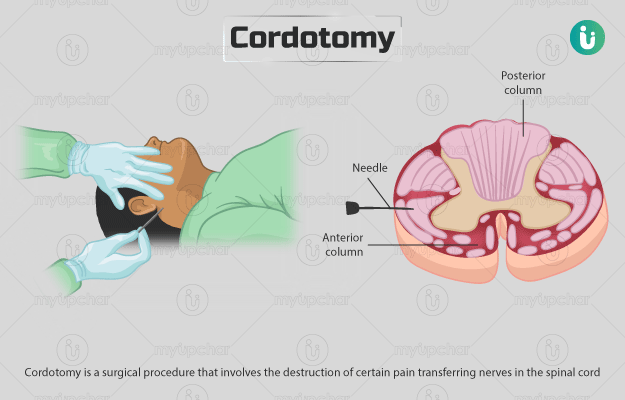Summary
Cordotomy is a surgical procedure that involves the destruction of certain pain transferring nerves in the spinal cord. Your doctor may recommend this surgery if you fail to respond to non-surgical treatment methods like medicines or injections for your pain. You will have to share information about your routine habits and medications with your doctor. The procedure will be conducted under local anaesthesia wherein X-ray imaging will be used to guide a needle inside your spine. When the nerve fibres carrying the pain are identified, they will be destroyed by heating the tip of the needle. Once you reach home after the surgery, you must take appropriate care of your wound a suggested by the doctor. These will mainly include keeping the operated area clean and dry and avoiding strenuous activities to promote healing.






































